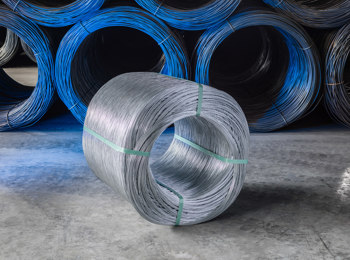Sep . 01, 2024 06:35 Back to list
gabion wall lifespan
Understanding the Lifespan of Gabion Walls
Gabion walls are structures made from wire mesh containers filled with rocks, stones, or other materials, often used in civil engineering and landscaping for various purposes, including erosion control, flood protection, and noise barriers. One primary consideration when implementing gabion walls in a project is their lifespan, which can significantly affect maintenance costs and overall effectiveness.
The lifespan of a gabion wall largely depends on several factors, including the materials used, environmental conditions, and the design of the structure. Typically, well-constructed gabion walls can last anywhere from 15 to 100 years. However, the average lifespan often falls between 30 to 50 years under optimal conditions.
Material Quality
The durability of gabion walls is heavily influenced by the quality of materials. The wire mesh used in gabions is usually coated with galvanized zinc or PVC to prevent rusting and corrosion. The lifespan of the gabion is directly tied to the protective quality of these coatings. Higher quality materials will withstand environmental stresses better, thus extending the overall lifespan of the wall. For instance, a well-galvanized wire mesh can last for decades even in harsh conditions, while poorly coated materials may result in significant deterioration within just a few years.
Environmental Impact
Environmental factors play a critical role in determining the lifespan of gabion walls. Exposure to moisture, UV rays, and extreme temperatures can significantly impact their longevity. In regions with heavy rainfall or flooding, gabion walls may experience accelerated deterioration if not designed to withstand such forces. In coastal areas, saltwater can corrode materials, necessitating the use of more resilient substances to extend their life.
gabion wall lifespan

Design Considerations
The engineering design of gabion walls also affects their lifespan. A structure that is adequately designed to handle soil pressures and water flow will perform better over time. For example, incorporating drainage systems to prevent water accumulation behind the wall can reduce hydrostatic pressure, which helps maintain structural integrity. Moreover, an appropriate design can mitigate the risk of undermining, which is one of the primary causes of structural failure in gabion walls.
Maintenance
Regular maintenance can further extend the lifespan of gabion walls. Periodic inspections to check for signs of corrosion, bulging, or erosion can help identify issues before they escalate. Keeping the wall vegetation-free can also minimize the risk of root penetration that may lead to structural failure.
Conclusion
In conclusion, the lifespan of gabion walls is influenced by various factors, including material quality, environmental conditions, design, and maintenance. With the right materials and thoughtful design considerations, these versatile structures can provide long-lasting solutions for erosion control and other civil engineering applications. Understanding these components is key to maximizing the lifespan and effectiveness of gabion walls.
-
HESCO Gabion Baskets for Coastal Erosion Prevention
NewsAug.22,2025
-
Longevity and Durability of River Rock Gabion Walls
NewsAug.22,2025
-
How to Integrate Gabion 3D Walls in Urban Planning
NewsAug.22,2025
-
Reno Mattress Gabion Applications in Civil Engineering
NewsAug.22,2025
-
How to Install Wire Mesh for Gabion Baskets Properly
NewsAug.22,2025
-
Best Materials for Filling a Chain Link Gabion
NewsAug.22,2025
-
Wire Mesh Thickness Impact on Gabion Wall Load Bearing
NewsAug.12,2025






